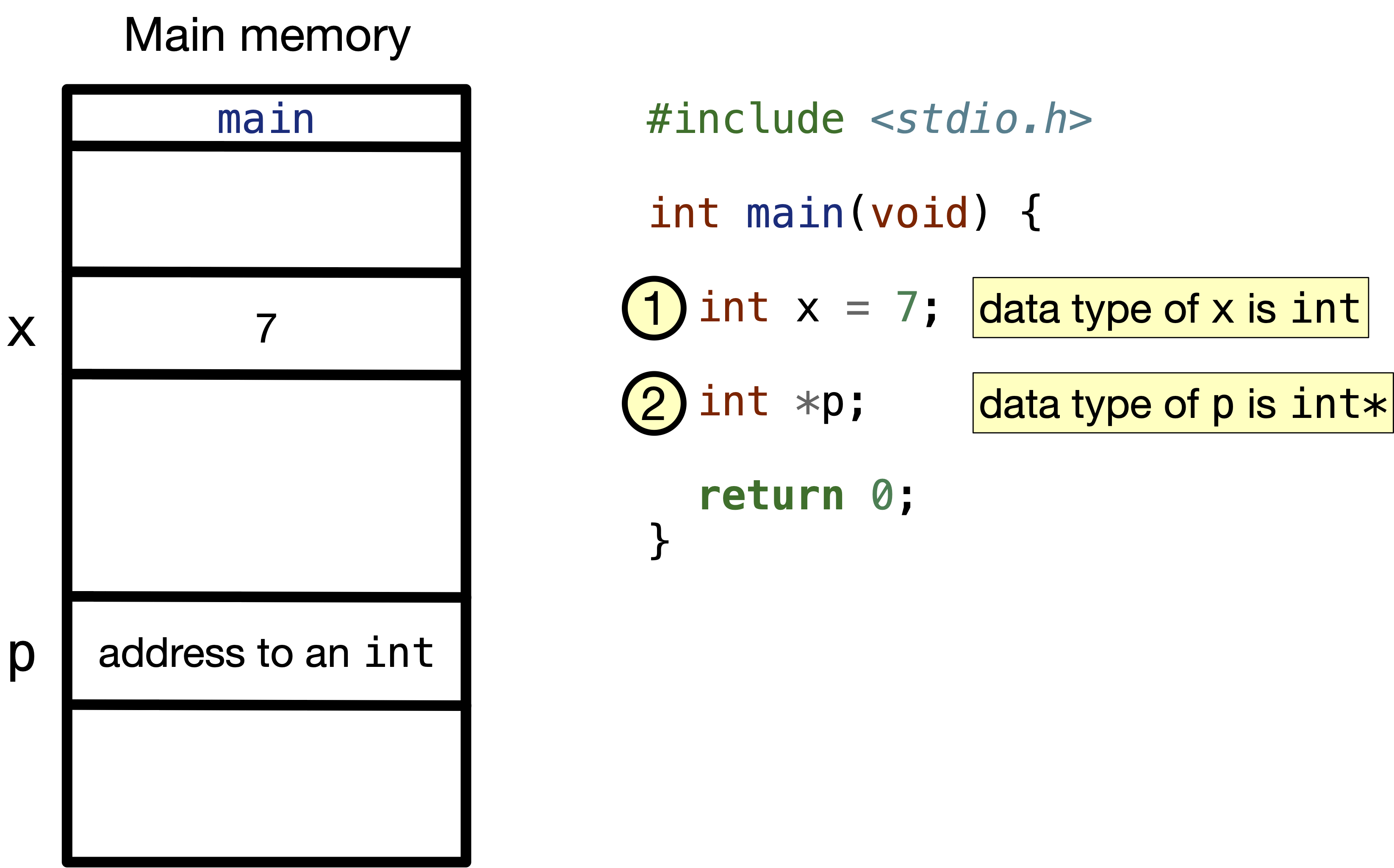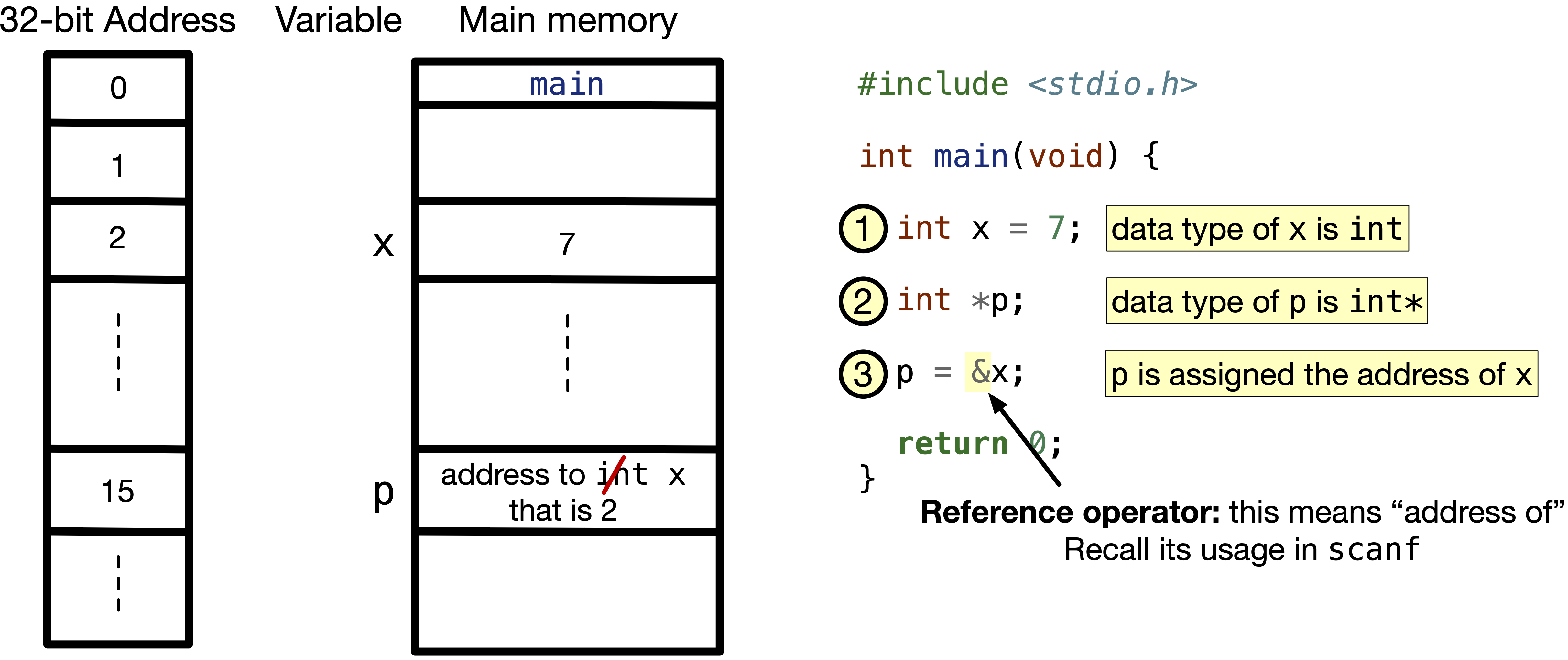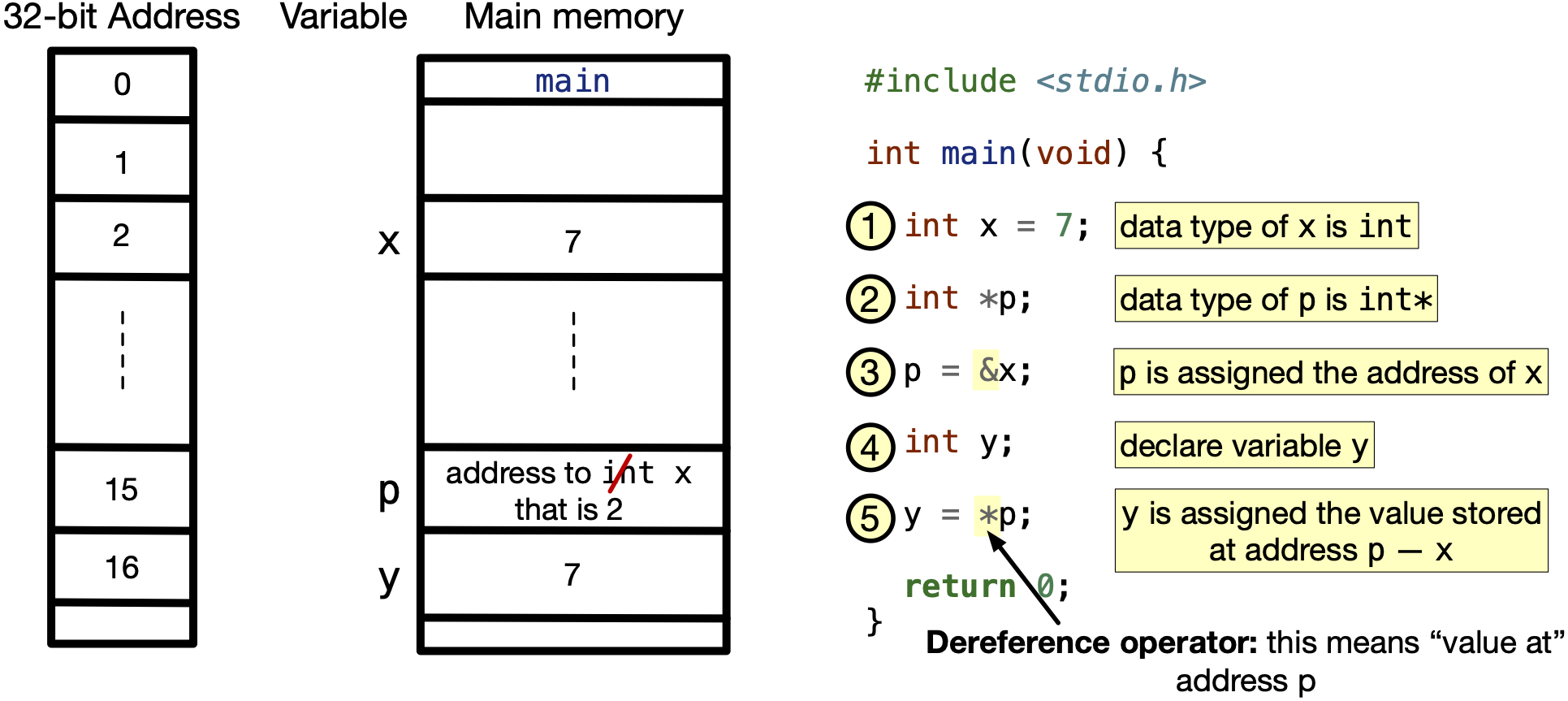What are pointers?
Contents
6.2. What are pointers?#
As we discussed earlier, every variable in our code is stored in the main memory. A pointer is a variable that holds the address of another variable. In the following figure, we have two variables: a int variable named x and is set to \(7\), and a pointer to a int named p that holds an address to a int.

Fig. 6.2 int and pointer to int (int*) variables in code and memory.#
As we learned before, declaring a variable without initializing it makes the variable hold a garbage value, i.e. in the above program, the variable p holds a garbage address.
How do we assign an address to a pointer? Using the reference operator &, we can get the address of a variable. For example, &x gets the address of variable x, which is \(2\) in the following figure. Then, we can assign this address \(2\) to p as in the following code.

Fig. 6.3 assign p the address of x.#
How do we get the value stored in an address? Using the dereference operator * on a pointer variable, we can get the value stored at an address. For example, *p gets the value stored at address \(2\), which is equal to \(7\).

Fig. 6.4 Assign contents pointed by p to y.#
Deep-dive Let’s look a little closer on the addresses and values stored in some addresses. In the following code, we print addresses and values stored in ints x and y, and in int* p. A format specifier for a pointer is %p. Download reference-deference.c if you want to play with the code yourself.
Code
#include <stdio.h>
int main(void) { int x = 7; int *p; p = &x; int y; y = *p;
printf("Address of x: %p\n Value of x: %d\n", &x, x); printf("Address of p: %p\n Value of p: %p\n", &p, p); printf("Address of y: %p\n Value of y: %d\n", &y, y); printf("Value stored in address %p is %d\n", p, *p);
return 0; }
Key observations from the printed statements:
The variable
xandyare stored in different places, but have the same value \(7\).The pointer variable
phas a different address from the address it stores. This is pointerphas the nature of storing addresses.*gets us the value stored at an address, and&gets us the address of a variable, even if the variable is a pointer. This would mean*(&x)would meanx, as*and&cancel each other.
6.2.1. Tracing exercise#
Let’s trace the code below to get a better understanding of how pointers work. A short video that goes over a program with pointers line by line is posted below. We dive deeper into what happens in the main memory as we execute the program.
Code
#include <stdio.h>
int main(void) { int x = 3, y = 4; int *a, *b;
a = &x; b = &y; printf("Before operations:\n"); printf("Value of x: %d\n", x); printf("Value of y: %d\n", y); printf("Value at address a: %d\n", *a); printf("Value at address b: %d\n", *b);
*a = 6; *b = *b + 3; printf("After operations:\n"); printf("Value of x: %d\n", x); printf("Value of y: %d\n", y); printf("Value at address a: %d\n", *a); printf("Value at address b: %d\n", *b); return 0; }
Quiz
0 Questions
